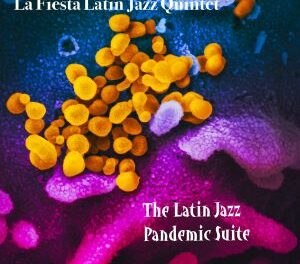The latest Sitkovetsky & Friends chamber concert served up an astoundingly rich and varied program. Guest artist Artyom Dervoed (Russia, b.1981) has been dubbed the “Tsar of the guitar” and has garnered more than a dozen first-place awards in various international competitions. As usual, Greensboro Symphony Orchestra music director Dmitry Sitkovetsky provided information about each of the pieces before they were performed, explaining that the entire program was “all about the guitar.” Indeed.
The concert opened with a solo guitar piece, the 1896 “Recuerdos de la Alhambra” (Memories of the Alhambra) by Francisco Tarrega (Spain, 1852-1905). The composer, known as “the father of the classical guitar,” preferred the intimacy of a private setting over the concert stage. This performance focused on the tenderness inherent in the score. Dervoed played with the utmost expressivity and remarkable rhythmic and dynamic subtlety, sometimes playing so soft that the audience seemed to need to lean forward to hear each note.
Niccolò Paganini (Italy, 1782-1840) is most often remembered as a virtuoso violinist (the Jimi Hendrix of the 19th century) who inspired Liszt to become a dazzling pianist. Sonata Concertata in A for Guitar and Violin, Op. 61 (1804) is written in the Classical three-movement form: fast-slow-fast. Dervoed and Sitkovetsky were the performers.
The first movement Allegro spiritoso (Cheerful witty) is mostly an animated conversation between the two instruments, trading melodic material in a dialogue manner. The slow movement offers a more languid discussion, with the guitar sometimes dominating the conversation, relegating the violin to, well, second fiddle. The lively finale is dance-like with lots of energy. The violin becomes more of an equal partner, and both musicians displayed good ensemble and communication, even if not always in tune.
The next work, Duo for Violin and Guitar by Kuzma Bodrov (Russia, b.1980), was a world premiere, commissioned by and written for Dervoed with this performance with Sitkovetsky in mind. “The highest artistic virtuosity of the musicians inspired me to explore an entirely new genre for my art,” the composer writes. “The piece is an attempt to convey… various states of a person’s soul, from melancholy and light sadness to absolute joy.”
The 15-minute work does truly explore a number of moods – from other-worldly beauty through mournful moaning to exuberant elation. Both musicians are equal collaborators in the multi-faceted work with the guitar sometimes leading and other times with the violin in the spotlight. While the work does not shy away from effective dissonance, it is mostly tonal and entirely listenable. It was a real pleasure to hear the first performance of the work with great committed playing by both Dervoed and Sitkovetsky.
While Mario Castelnuovo-Tedesco (Italy, 1895-1968) is not a well-known name, he wrote concertos for Jascha Heifetz and Gregor Piatigorsky plus more than 200 Hollywood film scores and is considered to be one of the major composers for the guitar in the 20th century. Dervoed was joined by GSO members Fabrice Dharamraj and Stephanie Ezerman, violins, Eric Koontz, viola, and Alex Ezerman, cello, for the composer’s 1950 Quintet in F for Guitar and String Quartet, Op.143, commissioned by Spanish guitarist Andrés Segovia.
The opening movement is mostly lively, although there are some less-energetic passages. The melodic material is more or less divvied up equally, and the entire group played with energy and delight. The slow second movement begins with the viola singing a plaintive tune, joined by the cello and 2nd violin, then first violin, and finally guitar. The ensemble gave this stunningly beautiful movement a heart-felt reading. The quirky third-movement Scherzo is a delight with its pizzicatos and harmonics. The lively finale begins softly with pent-up energy that eventually spills over into a no-holds-barred rush to the climactic final passage. The ensemble played with determination and energy, with some lovely moments as well. Sometimes ensemble was not as tight as it could have been, and intonation not perfect, but this is certainly a piece that needs to be heard on a more regular basis.
A delightful piece by Luigi Boccherini (Italy, 1743-1805) brought the quintet back for an encore: “Fandango” (which is an arrangement by the composer from his String Quintet in D, Op. 40/2). A slow introduction presents a serious mood before the dance breaks out. The characteristic rhythm repeats and the melody is tossed around through all the instruments. Cellist Ezerman got to add some lively rhythm with castanets and Dervoed augmenting the sound by tapping his guitar. A perfect piece to round out an enjoyable evening of seldom-heard music.











